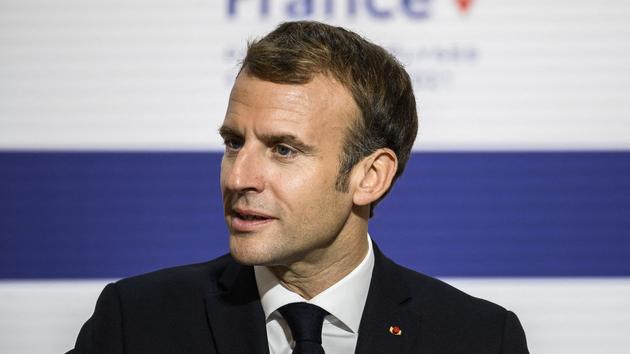In water, separate the hydrogen and oxygen atoms by an electrical process, the electrolysis of water.
This is one of the key technologies for the energy transition and the decarbonisation of the economy.
The executive is putting almost 9 billion euros on the table by the end of the decade to develop a French sector and prevent this know-how from being monopolized by low-cost Asian countries, as is the case today. 'hui for solar panels.
"We must master the various technological bricks and produce them on our territory"
, we hammer in the entourage of the president.
Even if it means financing daring and risky projects, such as that of the industrial start-up Genvia.
Read also
Hydrogen, a real potential that depends on its production
Emmanuel Macron visited the site of this industrial start-up in Béziers on Tuesday, the result of the association between the CEA, the oil services company Schlumberger, the construction giant Vinci, the cement manufacturer Vicat and the Occitanie region.
"A real nugget"
, applauded the president Tuesday, announcing a check for 200 million euros to help its development. She hopes to develop the electrolyser of tomorrow. Today, industrially built electrolysers are alkaline technology and require metals in high demand such as nickel. The solution developed by Genvia is said to be
"at high temperature"
.
It does not require rare raw materials and its yield is about ten points higher than other technologies, praises the CEA.
This solution makes it possible to use so-called
“fatal”
heat
, that is to say not used, produced on the fringes of industrial processes, such as the cement plant (hence Vicat's interest in the project).
Dynamics and projects
Genvia's challenge?
Go from small experimental prototype to large marketable object in just a few years.
Because the competition, especially German, is also on the spot.
Nothing guarantees the success of this project: the move to industrial scale is a challenge that some do not always manage to overcome.
“It's a very risky technology, a technological bet
, we admit at the Élysée.
It is a dynamic that we want to carry, and for that we have to take risks. ”
Read also
Hydrogen, the fuel of the future to decarbonise transport and industry
This project is part of a vast hydrogen strategy. A first component, endowed with 7 billion euros, was unveiled in September 2020. A second, in the amount of 1.9 billion euros, was included in the framework of France 2030, announced in October. In total, nearly 9 billion euros, therefore. In Béziers, Emmanuel Macron clarified the outlines. The aim is to diversify the risks, with projects showing different maturity, some still at the research stage, such as Genvia, others closer to industrialization. One year after the announcement of the first hydrogen plan, no less than 77 projects have applied for public aid.
"About fifteen of them have been selected and will be supported,"
says one at the Elysee. Genvia is one of them.
It is a technological bet.
It is a dynamic that we want to carry, and for that we have to take risks
A source at the Élysée
Another is carried by the John Cockerill company. The Belgian company has created a French subsidiary which will focus exclusively on hydrogen, more specifically on the manufacture of electrolysers using traditional alkaline technology.
"We are going to launch the construction of a gigafactory manufacturing the cells of the electrolysers in Aspach, in Alsace
," specifies Anne-Françoise Laime, General Delegate France of John Cockerill.
This represents an investment of 100 million euros, which made it possible to create 250 to 300 jobs ”
. The company has real know-how in this area, thanks to a joint venture already operational in China.
"For our European activity, nothing will come from China"
, reassures Anne-Françoise Laime.
The company is confident enough to have launched its investment without public support.
However, it is counting on this help to keep its schedule, which expects entry into service in the first half of 2023. Except that some candidates may be disappointed.
The requests of the 15 selected companies amount to 5.8 billion euros, when the government has earmarked only 1.5 billion euros on these projects.

